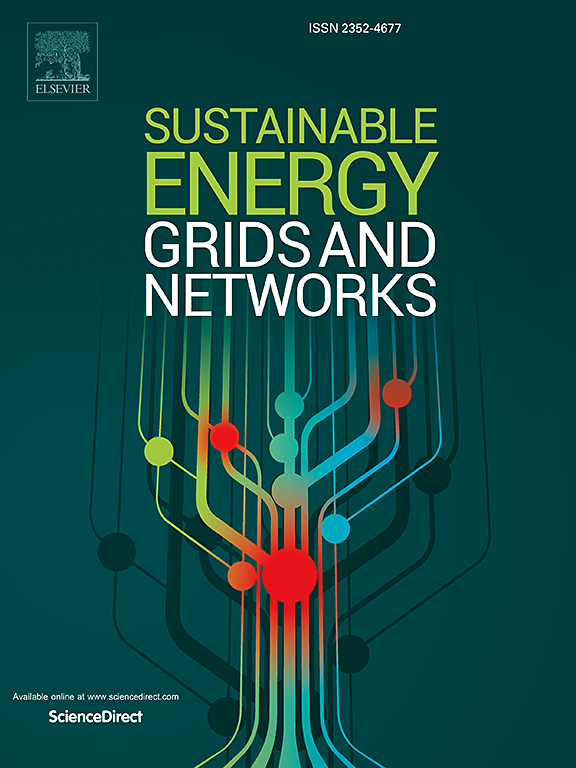Adaptive optimization and dynamic pricing in decentralized energy markets using blockchain technology and consensus-based verification
IF 4.8
2区 工程技术
Q2 ENERGY & FUELS
引用次数: 0
Abstract
Peer-to-peer (P2P) markets are the key to unlocking the streamlined convergence of the prominent 5D elements in microgrids. However, current implementations focus on conventional methods that prioritize electricity cost reduction which often results in sub-optimal grid operation. This underscores the need for holistic and adaptive optimization in decentralized energy markets. This research introduces a novel consensus strategy built on principles from blockchains to serve as an overarching cross-verification tool that ensures integrity between off-chain and on-chain computations. The strategy leverages a dynamic stake function and reputation system to outperform traditional proof-of-stake. An adaptive optimization model along with a dynamic pricing model is then proposed and validated through multiple Python simulations. The work is proven to improve P2P interactions and grid efficiency. Furthermore, the overall system was implemented in a Solidity smart contract and deployed on an Ethereum test work to demonstrate the interoperability and functionality of the framework proposed. Suggestions for subsequent research are additionally included. In summary, this paper contributes to decentralized, equitable, efficient and self-sufficient microgrids.
基于区块链技术和共识验证的分散能源市场自适应优化和动态定价
点对点(P2P)市场是释放微电网中突出的5D元素的流线型融合的关键。然而,目前的实施侧重于传统的方法,优先考虑降低电力成本,这往往导致电网运行不理想。这强调了在分散的能源市场中进行整体和适应性优化的必要性。本研究引入了一种基于区块链原理的新型共识策略,作为一种总体交叉验证工具,确保链下和链上计算之间的完整性。该策略利用动态权益函数和声誉系统来优于传统的权益证明。然后提出了一个自适应优化模型以及一个动态定价模型,并通过多个Python模拟进行了验证。该工作被证明可以提高P2P交互和网格效率。此外,整个系统在Solidity智能合约中实现,并部署在以太坊测试工作中,以演示所提出框架的互操作性和功能。另外还包括对后续研究的建议。总之,本文对分散化、公平、高效和自给自足的微电网做出了贡献。
本文章由计算机程序翻译,如有差异,请以英文原文为准。
求助全文
约1分钟内获得全文
求助全文
来源期刊

Sustainable Energy Grids & Networks
Energy-Energy Engineering and Power Technology
CiteScore
7.90
自引率
13.00%
发文量
206
审稿时长
49 days
期刊介绍:
Sustainable Energy, Grids and Networks (SEGAN)is an international peer-reviewed publication for theoretical and applied research dealing with energy, information grids and power networks, including smart grids from super to micro grid scales. SEGAN welcomes papers describing fundamental advances in mathematical, statistical or computational methods with application to power and energy systems, as well as papers on applications, computation and modeling in the areas of electrical and energy systems with coupled information and communication technologies.
 求助内容:
求助内容: 应助结果提醒方式:
应助结果提醒方式:


